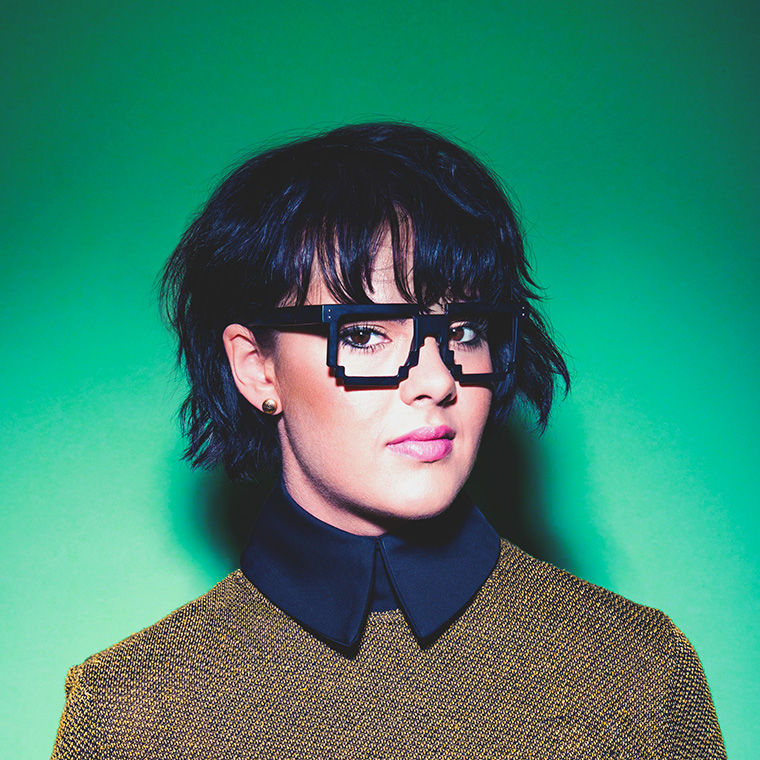Clairity channels outer space in debut
Claire Wilkinson, whose stage name is Clairity, released her debut EP, Alienation, on July 17 with LAVA Records.
September 8, 2015
Claire Wilkinson, also known by her stage name, Clairity, may come from White House, Tennessee, but the 17-year-old’s combination of electronic production and airy vocals contribute to her signature style, which can best be described as otherworldly.
Clairity, who released her debut EP, Alienation, on July 17 with LAVA Records, first broke into the music industry as a songwriter when acclaimed songwriter Pebe Sebert discovered her and began initiating songwriting sessions between her daughter, Kesha and Clairity.
Shortly after, Clairity was introduced to her now manager and publisher Kara DioGuardi. By spring 2014, Clairity was signed to Arthouse Entertainment for publishing, and then to LAVA Records as an artist in January 2015.
Drawing inspiration from the likes of Fiona Apple, Coldplay and Imogen Heap, her music explores feelings associated with being deemed an outcast.
The Chronicle spoke to Clairity about her new EP, transitioning into the music industry and writing with Kesha.
The Chronicle: What inspired your Alienation EP?
Clairity: Alienation was written about a period of my life in late middle school [and] early high school when I was bullied a lot and generally felt, like the title suggests, like an alien. I grew up in a very small southern town, and I felt totally out of place. Each record represents a vignette within that period of time. The overall theme is validating those moments where your life just isn’t glamorous—where you feel like a freak. I think it’s important for [listeners] to feel validated in those emotions.
What do you hope listeners gain from your music?
I want them to feel validated in their emotions or like they [don’t] have to hide parts of their personality. I want them to celebrate themselves. In a very huge way, that was a personal revelation I came upon creating the music for this. [It’s] exciting because now I can finally share that with people, and they can have the same personal revelation. Hopefully they equate that to some level of confidence and self-celebration.
How did you transition from songwriting to performing?
Upon starting a project—even my LP will be the same way—I have a very specific idea of what I want the project to convey and I feel like I’m the only one who can speak that and say that in a way that exists in my mind. It’s sort of like a language barrier—I have to write my own music. My songs were just so personal. To be quite honest, some of the titles and some of the perspectives in my music are so weird I just didn’t know what artist I would pitch [them] to. I honestly didn’t know where to start, and at that point I was like, “well maybe I ought to consider having my own artistry and singing my own songs.”
How did writing with Kesha happen?
I was in Los Angeles with [Kesha’s mother], Pebe Sebert and we were in the studio, and Kesha was on a train to New York. She wanted to write with us so bad, so she was in the bathroom singing melodies to us on the phone, and it was amazing. It was so much fun. She was like one of my favorite people. She was so goofy and just a fantastic person. She and her family are amazing.
What did you learn from writing with Sebert?
She gave me a really good sense of confidence in my message. There were so many things I wanted to say as an artist, but I was afraid of being preachy, but she really promoted that in me, anyway. She was like, “if this has importance for you to say, then you have to say it in the only way you know how to say it,” which really speaks to me. She gave me a gift in teaching me that.
What is next for your musical career?
I consider myself a writer first and foremost, so I’m never going to stop making music. I’m constantly taking writing sessions and figuring out what the next step is for me creatively. I’m always evolving in that way. Hopefully [I’ll] tour. I really want to play more shows—that’s something I kind of missed being a writer. Hopefully [I’ll release] an LP in the near future.








